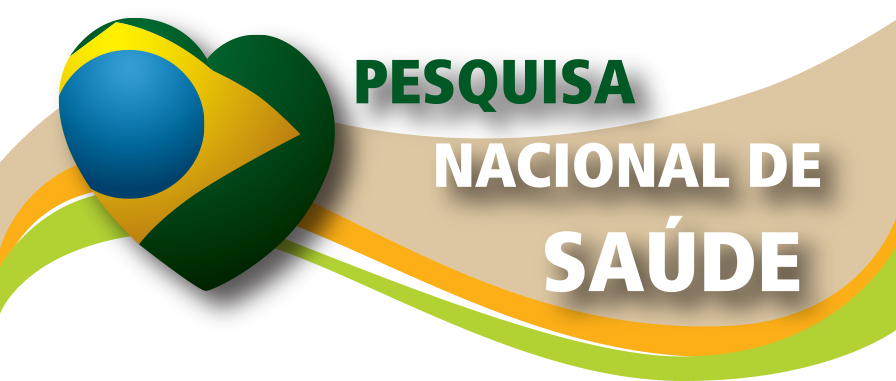Notícias
ATENÇÃO P´RIMÁRIA
Lançamento Nacional da Operação Coleta de Informações PNS
Foi lançada na segunda-feira, 26 de agosto, a etapa de coleta de informações da Pesquisa Nacional de Saúde na sede do Instituto Brasileiro de Geografia e Estatística (IBGE), no Rio de Janeiro. A Pesquisa Nacional de Saúde (PNS) é a pesquisa desenvolvida pelo (IBGE) em parceria com o Ministério da Saúde, cujos principais objetivos são identificar as condições de saúde da população, aspectos referentes ao acesso aos serviços e ações de saúde, sua exposição a fatores de risco e proteção a doenças crônicas, bem como situações que caracterizam estilo de vida com repercussão sobre a saúde.

A PNS é realizada a partir de entrevistas em um conjunto de domicílios selecionados, e é constituída por questionário composto por duas partes: uma com informações do domicílio e seus respectivos moradores; e uma dirigida a apenas um dos moradores, de 15 anos ou mais, selecionado para responder informações específicas sobre sua saúde, e também, ter seus dados antropométricos coletados.
Uma das grandes apostas e novidades da edição atual da pesquisa é a possibilidade de identificar como vem se dando o acesso aos serviços de Atenção Primária à Saúde do país a partir da utilização de versão compacta e estatisticamente validada do instrumento denominado PCATOOL-Primary Care Assessment Tool. O PCATOOL foi desenvolvido por pesquisadores da Universidade Johns Hopkins, situada nos Estados Unidos, e validado para o contexto brasileiro nos anos 2000.
A partir desse instrumento é possível - considerando-se a visão dos próprios usuários da APS - identificar a presença e extensão dos chamados atributos da Atenção Primária à Saúde. Os atributos da APS podem ser compreendidos como características que, quanto mais presentes nas ações e serviços operacionalizados pela APS, maior é a possibilidade do sistema de saúde ser melhor organizado, resolver a maior parte dos problemas de saúde e produzir melhores resultados na saúde da população. Os atributos essenciais da APS são o acesso de primeiro contato, a longitudinalidade, a coordenação e a integralidade; os blocos de perguntas referentes a cada um deles, ou seus respectivos desdobramentos, resultam em um score/pontuação geral para a qualidade da APS.
Com isso, além da possibilidade que a PNS traz de termos um retrato da APS brasileira a partir da visão de cada cidadão do país, será possível também, compararmos a APS brasileira com a atenção ofertada em outros lugares do mundo, tendo em vista que países como Canadá, Espanha e Estados Unidos já utilizaram o instrumento.
Portanto, a expectativa para os resultados da Pesquisa Nacional de Saúde é bastante positiva, considerando-se a oportunidade que o Ministério da Saúde tem de ter um retrato da situação de saúde dos brasileiros e da oferta das ações e serviços do SUS, de modo que possam ser identificadas as potencialidades e fragilidades dos serviços, e possam ser subsidiadas as tomadas de decisão na direção de correção de percurso e reforço ao que vem dando certo nas políticas públicas de saúde.
Ressalta-se ainda, a oportunidade que cada um dos brasileiros tem, ao abrirem as portas aos agentes do IBGE, de vocalizarem como vêm se dando seu acesso aos serviços do sistema de saúde, e contribuírem para a obtenção de um panorama da situação de saúde do país.
Todos os agentes de pesquisa do IBGE estarão identificados com o crachá e usarão equipamento eletrônico de coleta de dados (computador de mão). Os moradores poderão confirmar a identidade do entrevistador em ligação telefônica gratuita para 0800-721-8181. Vale lembrar que os usuários que tiverem dúvidas sobre o processo da Pesquisa poderão acessar também a Ouvidoria do Ministério da Saúde, a partir do 136. É importante esclarecer também que, na ocasião da entrevista, diante de eventual necessidade, os cidadãos poderão receber orientações sobre os serviços de saúde a procurarem.
A coleta de informações iniciada agora tem previsão de término para fevereiro de 2020, e a participação de cada um dos usuários selecionados fará toda a diferença para a obtenção de um retrato da saúde do país todo.
Launch of Fieldwork of Brazilian National Health Survey (PNS-2019) from Brazilian Institute of Geography and Statistics (IBGE)
PNS-2019 includes new topics such as parenting, male prenatal participation, sexual activity, and working conditions. It was launched on Monday, August 26, the stage of collecting information from the PNS-2019 at the headquarters of the Brazilian Institute of Geography and Statistics (IBGE), in Rio de Janeiro.
The National Health Survey (PNS-2019) is the research developed by (IBGE) in partnership with the Ministry of Health, whose main objectives are to identify the health conditions of the population, aspects related to access to health services and actions, their exposure to risk factors and protection against chronic diseases, as well as situations that characterize lifestyle with repercussion on health.
The PNS-2019 is conducted from interviews in a set of 100,000 households, statistically sampled, and consists of a questionnaire consisting of two parts: one with information on the household and its respective residents; and one directed to only one of the residents, aged 15 or in some cases 18 or older, selected to answer specific information about their health, and also to have their anthropometric data collected.
One of the major bets and news of the current edition of the research is the possibility of identifying how access to the Primary Health Care services in the country has been made through the use of the reduced and statistically validated version of the instrument called PCAT-Primary Care Assessment Tool. PCAT was developed by researchers from Johns Hopkins University, located in the United States, and validated for the Brazilian context in the 2000s.
From this instrument it is possible – considering the view of PHC users themselves – to identify the presence and extension of the so-called Primary Health Care attributes. PHC attributes can be understood as characteristics that, the more present in actions and services. operationalized by PHC, the major the likelihood that the health system will be better organized, solve most health problems and produce better health outcomes for the population. The essential attributes of PHC are first contact access, longitudinality, coordination and comprehensiveness.
The items for each of them, or their respective group of items, result in an overall PHC quality score. Thus, in addition to the possibility that the PNS-2019 brings us to have a picture of Brazilian PHC from the perspective of each citizen of the country, it will also be possible to compare Brazilian PHC with the attention offered elsewhere in the world, considering which countries as Canada, Spain and the United States have already used the instrument.
Therefore, the expectation for the results of the Brazilian National Health Survey is very positive, considering the opportunity that the Ministry of Health will/can/could have a baseline of the health situation of Brazilians and also to mesure the National Health System (SUS) actions and services offers, so that the potentialities and weaknesses of the services can be identified, and so could/can subsidize the decisions-making in the direction of correction and reinforcement of what has been working in public health policies.
It is also noteworthy, the opportunity that each of the Brazilians have, when opening the doors to IBGE agents, to vocalize how their access to the health system services has been giving, and to contribute to obtaining an overview of the health situation. from the country. All IBGE research agents will be identified with the badge and will use electronic data collection equipment (handheld). Residents will be able to confirm the interviewer’s identity by calling toll free 0800-721-8181.
Remember that users who have questions about the research process can also access the Ombudsman of the Ministry of Health, from 136. It is also important to clarify that, at the time of the interview, citizens may receive guidance on the possible need to health services to look for. Information collection started now is expected to end in February 2020, and the participation of each of the selected users will make all the difference in getting a picture of the health of the entire country, visiting more than 100,000 households in all Brazilian regions.
Acknowledgments: We would like to thank Suzanne Haziot, a Brazilian who speaks three languages fluently, who has been living in Geneva for 15 years, who has voluntarily translated this version into English.
Source: Brazilian Ministry of Health, available in portuguese from:
http://aps.saude.gov.br/noticia/5614
(access on 16 Sept 2019).
 Leia
aqui
versão inglês em PDF.
Leia
aqui
versão inglês em PDF.